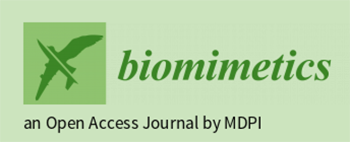Abstracts can be submitted for presentations and for posters.
Presentations will be 15 minutes, with an additional 5 minutes for discussion. There will be two dedicated poster sessions and one introductory session with poster flash talks. In addition, posters will be up during coffee and lunch breaks.
Abstracts need to specify the title of the envisaged contribution and must not exceed 250 words. The document should not have more than 3 pages including figures or graphics and the file size should not exceed 3 MB. At least two and up to five topical keywords need to be specified. An overview of keywords within the four topical areas of the conference can be found below. Up to three publications can be cited, outside of the word count.
Posters that will be presented at the conference must be in DIN A0 and portrait format.
The abstract submission is closed.
Topical Keywords:
Energy Autonomy
- Solar energy harvesting
- Thermal energy harvesting
- Triboelectric energy harvesting
- Energy storage
- Batteries
- Supercapacitors
- Hybrid system integration
- Photobatteries
- Photosupercapacitors
- Thermal batteries
- Redox-processes
- Charge transfer
Adaptivity
- Dissipative systems engineering
- Dynamic covalent chemistry
- Fueled systems
- Autonomous response
- Metamaterials
- Force/Function systems
- Integrative multimaterial manufacturing
- Light/Magnetic actuation
- Biomimetics
- Bioinspiration
Longevity
- Damage repair (self-sealing, self-healing)
- Damage resistance
- Damage control
- Damage prevention
- Damage management
- Resilience (failure tolerance)
- Robustness (fault tolerance)
- Redundancy
- Abscission
- Detachment
- Debonding
- Disintegration
- Gradient transitions
- “Trained” materials systems
- Thigmomorphogenesis
- Response, acclimation, adaptation
- Functional and structural integrity
- Metamaterials
- Programmable materials
- Biomimetics
- Bioinspiration
Societal Implications
- Ethical considerations
- Empirical ethics
- Sustainability assessment
- Sustainable Development Goals (SDG)
- Prospective technology assessment
- Philosophical reflection on technology
- Philosophical reflection on nature and life
- Empirical assessment on technology acceptance
- Quantitative empirical research
- Qualitative empirical research
- Methods for the assessment of technology acceptance
- Regulation of novel technologies
- Modelling of risk
- Modelling of behavior
- Anthropocene, ethics of technology
- Environmental ethics
- Real time ethics, interdisciplinarity
- Transdisciplinarity
- Biomimetic promise
- Bridging science and society
- Human-centered engineering
- Community-based technology assessment
Demonstrators
- Biomimetics
- Biomimetic processes
- Bioinspiration
- Biomimicry
- Soft robotics
- Soft autonomous machines
- Demonstrators
- 3D/4D printing
- Bioinspired materials
- Adaptive materials systems
- Programmable materials
- Logic materials
- Logic gates networks
- Soft robotic analog control
- Analog logics
- Metamaterials
- Unit cells
- Machine learning
- Unit cell design
- Neural networks
- Materials memory
- Artificial Venus flytrap
- Soft robotic grippers
- Robotic tactile sensing
- Embodied intelligence
- Embedded energy systems
- Energy harvesting in autonomous moving systems
- Material based actuators
- Low energy actuators
- Environmental adaptive actuators
- Environmental adaptive soft robots
- Environmental triggered actuation
- Environmental responsive materials
- Triggers for soft autonomous machines


